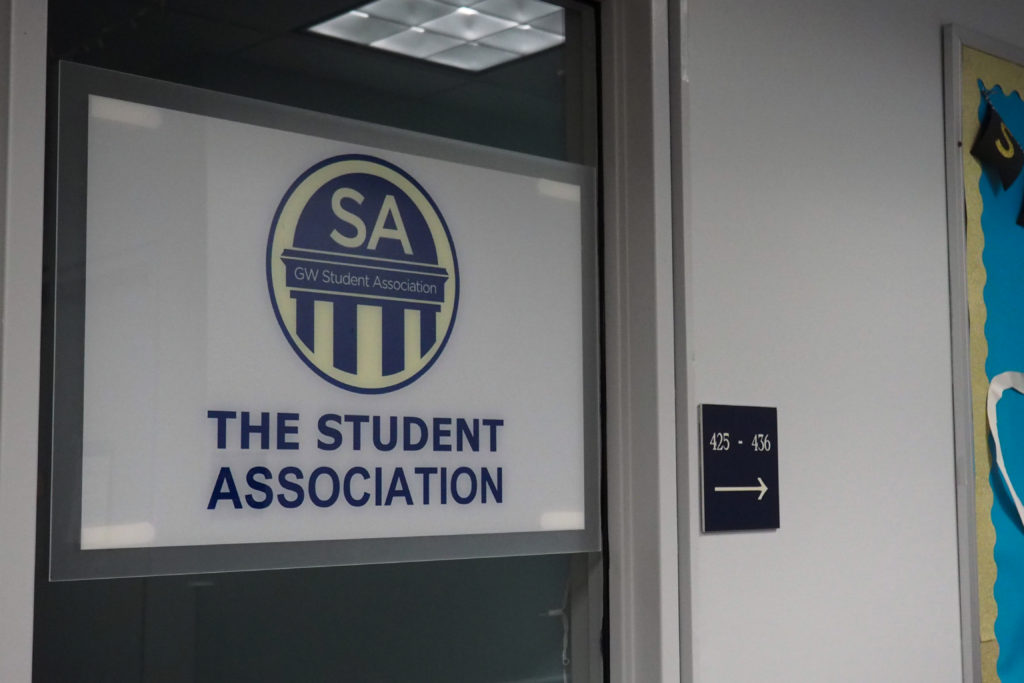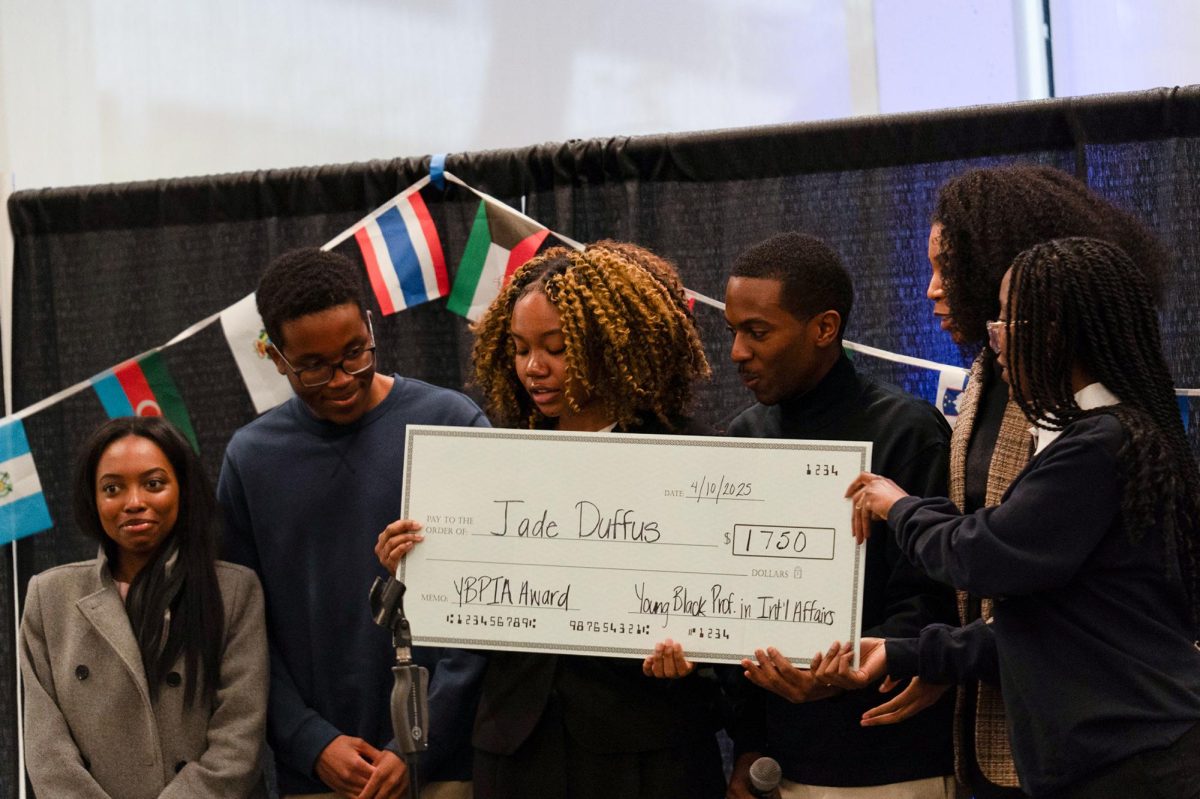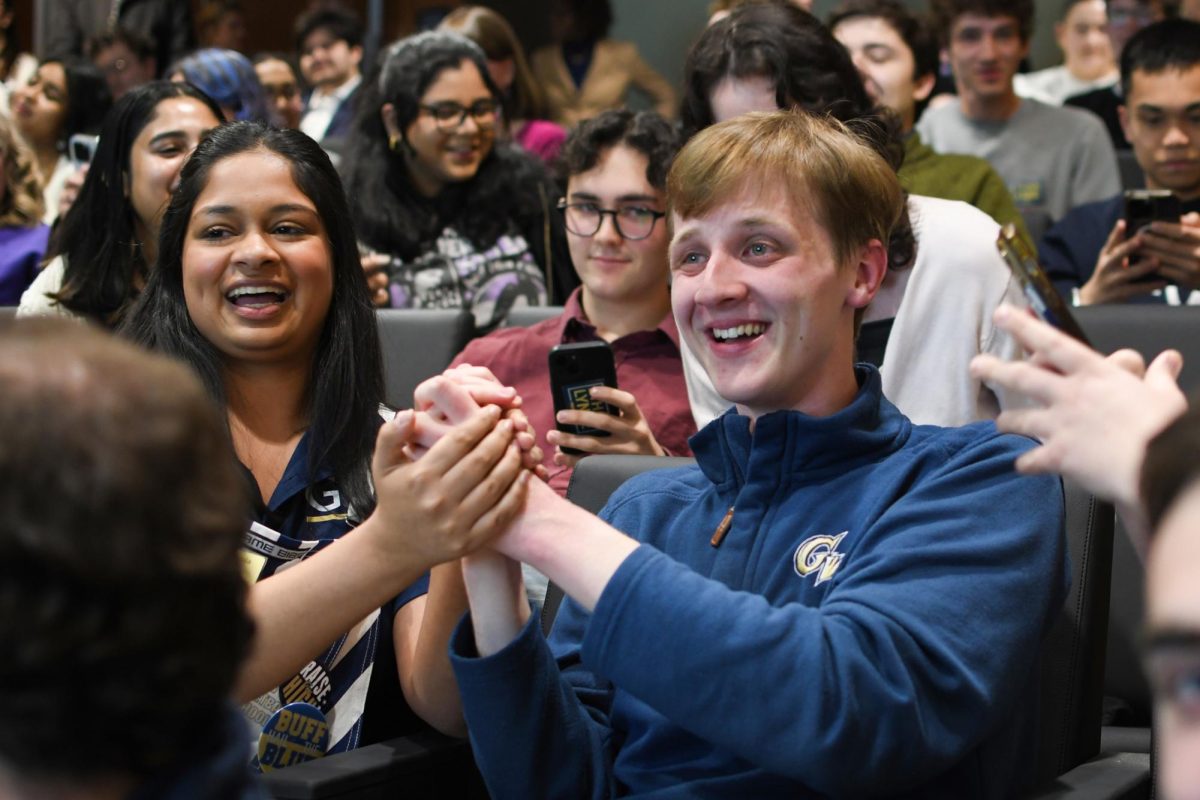Nine Student Association senators have resigned since the start of the SA Senate’s term in May, nearly doubling the number of early departures during the previous term.
More than half of the SA senators who resigned said they did so to commit their time to matters outside the SA, leaving vacancies in seats representing graduates or undergraduates from five of GW’s schools. SA leaders said vacancies have become a more pressing problem for the body throughout the academic year, as the now-smaller senate has struggled to vote on legislation, like bylaw amendments, and handle external issues.
SA Sen. Cordelia Scales, SEAS-U and chairperson pro tempore, said this year’s resignation total nearly doubles the number from last year when five stepped away from the senate. Scales, who works to fill senator vacancies, said the switch back to in-person meetings this fall may have prompted more senators to resign because it required more of a time commitment to travel to the meetings instead of just signing on to Zoom.
She also said the “toxic environment” of the senate may discourage people from staying. She said the atmosphere in the SA is “not great” right now because senators often have disagreements about pieces of legislation, like the President LeBlanc Recognition Act, and because the SA is not seen as the “most respected” body on campus right now.
“To better the atmosphere, we need to have more open and honest discussions and actually listen to each other instead of coming into meetings with preconceived notions about the way things should go,” Scales said.
The empty seats have included two undergraduate seats for the Columbian College of Arts and Sciences, undergraduate seats in the School of Business and the Elliott School of International Affairs, the undergraduate and graduate seats for the Milken Institute School of Public Health, a graduate seat for the School of Engineering and Applied Sciences and two graduate at-large seats.
The senate started its term in May with 14 vacancies, which has been a recurrent trend in the SA during previous years. The SA has rarely kept a full senate this term, confirming new senators at nearly every meeting since August and posting applications for vacant seats on its social media every month since May.
Thirty-eight senate seats represent undergraduate and graduate students from 10 of GW’s schools, which are apportioned based on the school’s population. One undergraduate CCAS seat is currently vacant, more than a month after the last resignation.
Alex Griffin, a former CCAS undergraduate senator, said last month that he resigned to focus his time on GW Greenhouse Club, which looks after the Wilbur Harlan Greenhouse in the Science and Engineering Hall. He said he and SA Sen. Sofia Packer, U-at-Large, were the only senators to vote against the President LeBlanc Recognition Act at a meeting last month, and his opposition to the senate’s decision to pass the LeBlanc resolution made it “easier” for him to resign.
The senate demanded former University President Thomas LeBlanc’s resignation last year, citing more than 20 instances as reasons for him to resign, including the hiring of Heather Swain, plans to cut undergraduate enrollment and LeBlanc’s use of a racially insensitive remark.
“I just felt like the time that I was investing into the SA was not time I wanted to be spending,” Griffin said in an interview. “I thought that efforts on sustainability on campus I could be doing through other avenues besides just the SA.”
Conner Hounshell, a former Milken graduate senator who resigned in October, said in his resignation letter that he does not have enough time to commit to the SA, but he appreciates the body’s work and looks forward to “collaboration” with them in the future. He said in an email that the SA’s “internal drama” may have inhibited the senate from passing more legislation.
Hounshell said the senate should work to involve more graduate students in the SA and should make the three- to four-hour meetings shorter so they’re more accessible for graduate students, especially those who have jobs.
“The atmosphere of the SA was somewhat chaotic and once in a while hostile/tense, but this seems a normal (and maybe inevitable) environment for student government,” Hounshell said in an email.
Onyinye Ijeh, a former graduate at-large senator, said she resigned from her seat in September because no one notified her that the governance and nominations committee would nominate her to the senate until the day of her confirmation early in September. She said the committee previously rejected her application to join last summer, so she made different plans for the then-upcoming school year because she did not think nomination was likely.
Ijeh was not present at the meeting where she was nominated, but the senators confirmed her as a senator.
“I just didn’t really understand what was happening,” Ijeh said in an email. “I was denied earlier in the summer and had made other plans (I now have a full time job) and so would not be able to balance SA, school and my work schedule.”
Charlotte Gaynor, a former graduate senator for SEAS, said she chose to resign from her position in September because she could not make time for the SA while working as a middle school teacher in D.C. Nolan Madden, a former undergraduate senator for the business school, said he resigned before attending any senate meetings during the summer because of time conflicts with meetings.
SA Vice President Kate Carpenter confirmed former senators’ assertions that time constraints were a large reason why many resigned. She said senators generally spend about 20 hours per month working for the senate, most of it in biweekly senate meetings and committee meetings.
Carpenter also said vacancies made it difficult to pass legislation in the senate, especially because the SA bylaws state that at least two-thirds of the senators must be present to pass legislation. Any amendments to the Constitution also require a two-thirds majority of approval from the senate, according to the bylaws.
“It is a decent amount of meetings that are very long, strenuous and can sometimes come at a really hard time,” Carpenter said in an interview. “If it’s during finals or during midterms on Monday night from 8 p.m. to 1 in the morning, it’s not doable for everyone.”
Former SA senators Charlene Richards, Jovawn McNeil, E’Quince Smith and Adam Snyder, who also resigned from the senate during the fall semester, did not return requests for comment.







